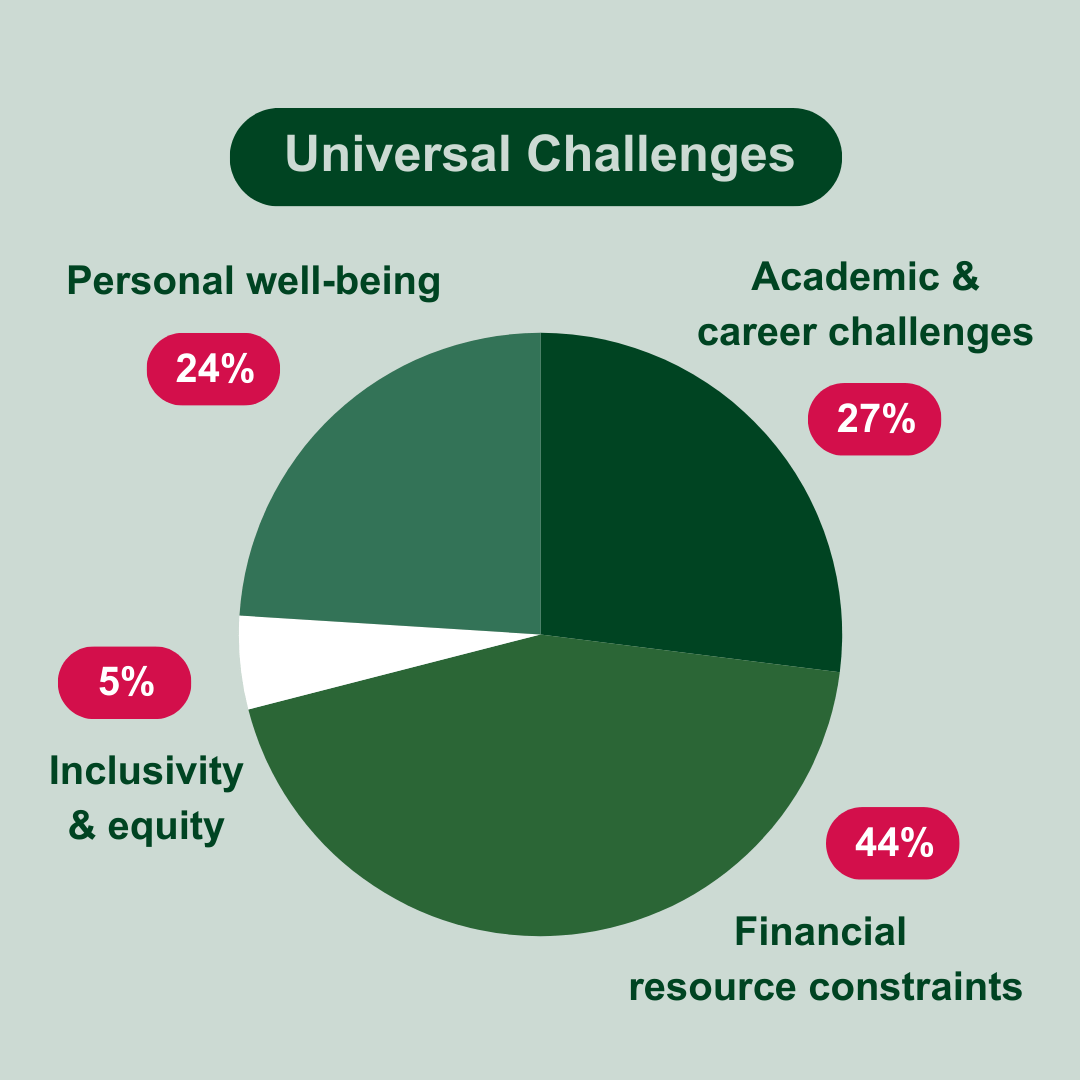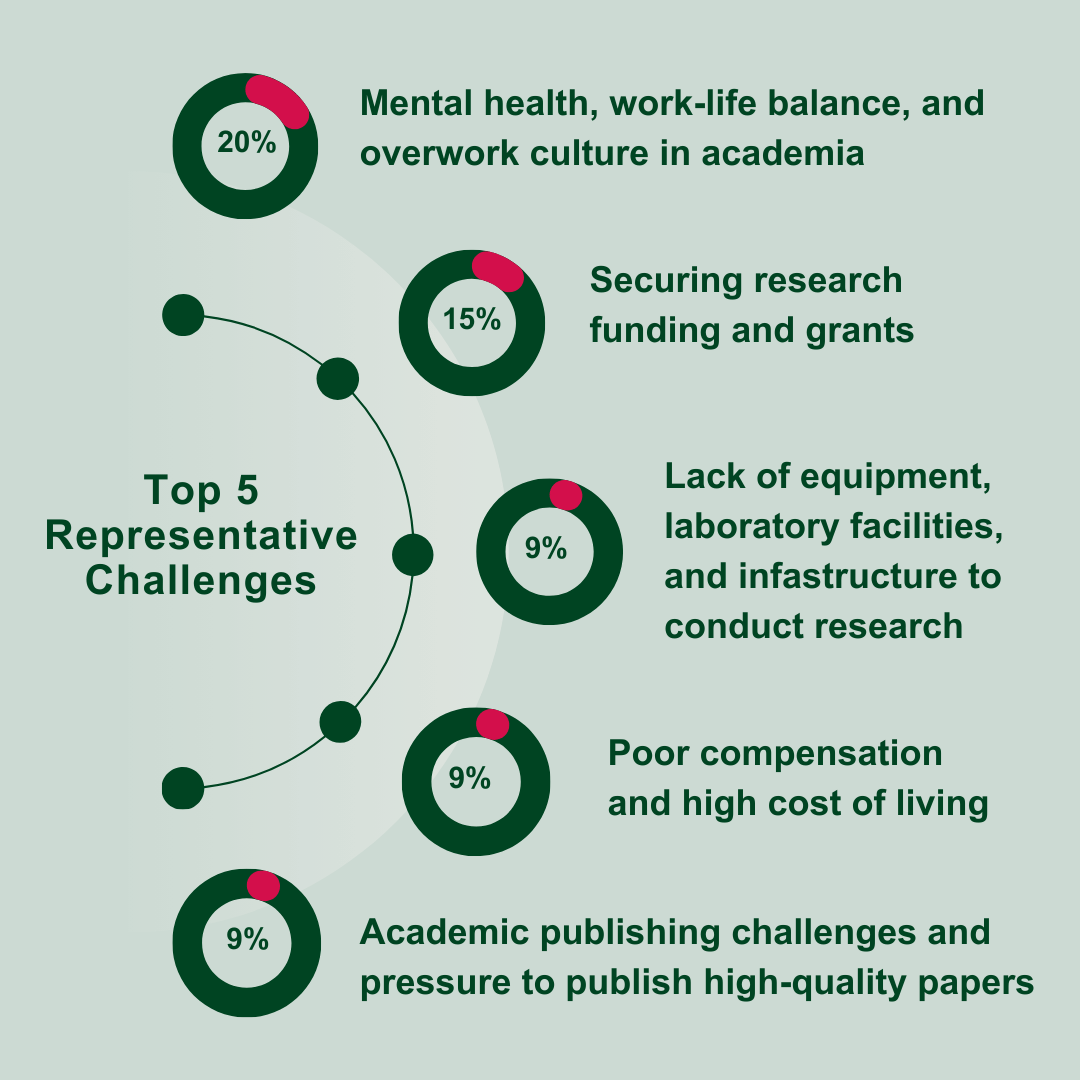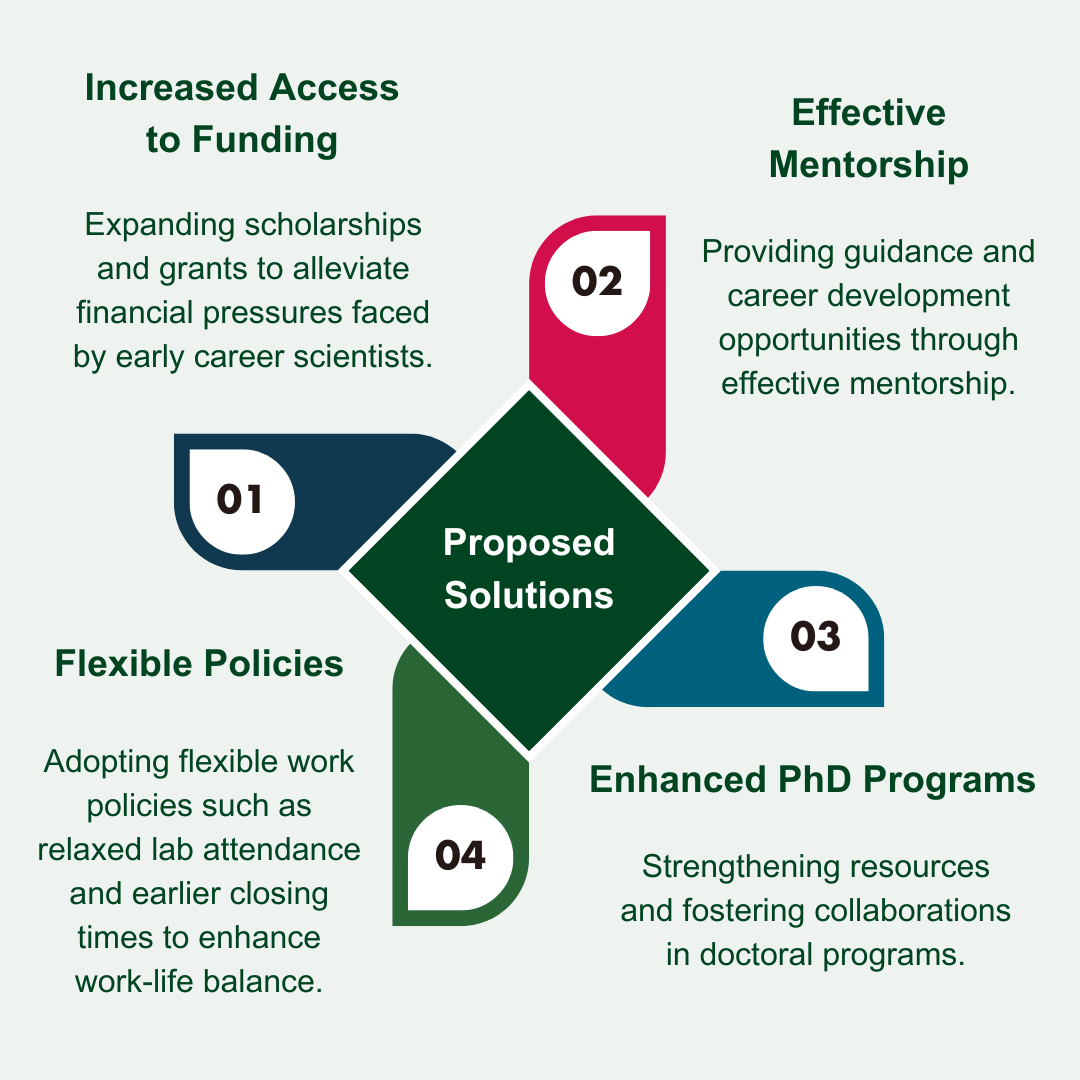Voices of Early Career Scientists: Insights and Perspectives Unveiled

Insufficient funding, academic pressure, and gender discrimination were highlighted as major challenges faced by early career scientists (ECS) in a recent comprehensive study conducted by Bayer Foundation in collaboration with Impact Intelligence. The research explored the experiences of ECS in the fields of STEM (science, technology, engineering, math), health sciences, natural sciences, and life sciences, focusing on Germany and sub-Saharan African countries such as Benin, Cameroon, Congo, Ghana, Kenya, Nigeria, and South Africa.
The analysis aimed to shed light on both common and region-specific challenges, as well as gender-related issues, while proposing actionable solutions to help early career scientists (ECS) overcome their struggles. Find below the key findings of the study, which employed AI-powered text analytics on 229 survey responses, 36 in-depth interviews, 1700 academic publications and 64,000 social media discussions.
Key Findings
1. Common Challenges of Early Career Scientists
ECS encounter several shared challenges:
- Financial and Resource Constraints: Nearly half of the respondents report having limited access to funding and essential research equipment, which significantly restricts their ability to conduct research effectively.
- Academic and Career Challenges: Around 27% of respondents face difficulties securing permanent positions and are under high pressure to publish, resulting in a challenging academic environment.
- Personal Well-being: Approximately 24% of ECS experience issues with work-life balance, mental health, and burnout.
- Inclusivity and Equity: About 5% of ECS encounter challenges related to balancing parenthood, gender bias, and cultural barriers.
2. Gender-Specific Challenges
- Gender discrimination and bias: Women scientists report experiencing underrepresentation and bias in scientific leadership and decision-making roles.
- Balancing career and family: Women often face greater difficulty balancing family responsibilities with career progression, impacting their personal well-being.

Excerpt from in-depth interviews
3. Geographical Differences
Challenges vary by region:
- Germany: ECS struggle more with academic and career prospects, including securing permanent job contracts and managing workloads.
- Sub-Saharan Africa: Financial constraints are more pronounced, with difficulties securing research funding and accessing necessary equipment.
Proposed Solutions
Conclusion
The study reflects the true experiences of Early Career Scientists, highlighting the multifaceted challenges and providing actionable solutions to enhance their career prospects and personal well-being. These identified solutions are in line with Bayer Foundation’s initiatives which include offering scholarships and fellowships, fostering collaborations with international organizations, and providing access to online resources like scientific lectures. Bayer Foundation is dedicated to exploring activities that further support the suggested solutions. Finally, the study results allow for tailored recommendations for various stakeholders to address these challenges and foster a more supportive and equitable research environment for the next generation of scientists.
For a detailed overview of the findings and recommendations, please refer to the full presentation available here.
We would like to thank all Early Career Scientists that contributed to this research by sharing their experiences with us!






